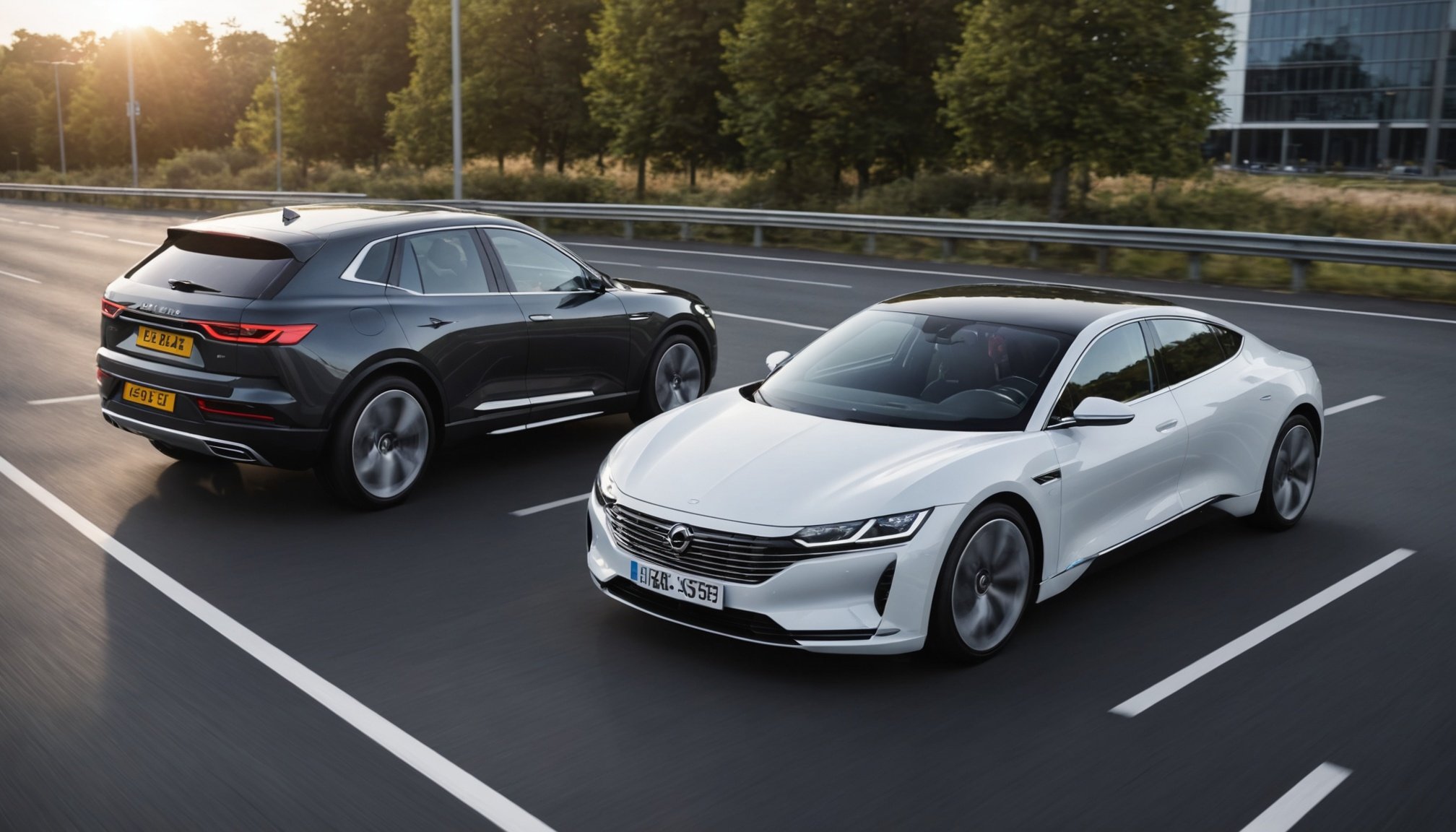Overview of Emerging Car Technologies
Emerging car technologies are rapidly transforming the automotive industry, offering innovative solutions that shape its future. Among these, autonomous vehicles and electric cars are standout developments, pushing the boundaries of what is possible. As these technologies advance, it is crucial to stay informed about the trends reshaping the landscape.
In the UK, automotive innovations are heavily influenced by market trends and changing consumer demands. Key technologies include vehicle automation, which aims to improve safety and efficiency, and electric vehicles (EVs), which offer sustainable transportation options. These advancements are critical in meeting the growing consumer preference for environmentally friendly and technology-enhanced vehicles.
Also read : Enhancing your uk driving experience: leveraging technology for a smarter journey
Informed awareness of these changes is vital for both consumers and industry stakeholders. By understanding how these technologies are changing the UK market, individuals can make more informed purchasing decisions, while businesses can leverage this knowledge to stay competitive. As the automotive sector continues to evolve, staying updated on these innovations will offer significant advantages and encourage proactive engagement with future developments.
Electric Vehicles (EVs)
The proliferation of electric vehicles in the UK is a testament to the growing drive towards sustainable transportation. The market for EVs has been significantly bolstered by consumer demand for environmentally-friendly alternatives to petrol and diesel cars. Government initiatives, such as grants for purchasing EVs and investments in charging infrastructure, have also played a pivotal role in promoting this shift.
This might interest you : Essential insights for uk first-time car owners: responsibilities you need to know
Key players in the electric vehicle market include industry giants like Tesla, Nissan, and BMW, who have led the charge in innovation with models offering extended ranges and rapid charge times. Additionally, newer entrants are making headway, enhancing competition and driving further advancements in efficiency and design.
One of the main facilitators of EV adoption has been the UK’s commitment to establishing a comprehensive charging network. Such infrastructure development is pivotal, as it alleviates range anxiety—a common concern among potential EV buyers. As a result, the future of transportation in the UK looks increasingly electrified, with electric vehicles set to dominate the automotive landscape, propelling the industry towards a greener and more connected future.
Autonomous Driving Technologies
The rise of autonomous vehicles is reshaping the automotive industry both in the UK and globally. As self-driving technology becomes more sophisticated, its potential to transform transportation is immense. In essence, these vehicles leverage a combination of sensors, artificial intelligence, and machine learning to navigate and operate without human intervention. Key technologies include LiDAR sensors and advanced computer vision systems.
Safety is paramount in the development of these systems, and vehicle automation takes centre stage in discussions about regulatory standards. While some express concern over accountability and safety, advancements continue to improve public perception and reliability. Autonomous vehicles aim to reduce accidents caused by human error, thus enhancing overall road safety.
Public perception varies, with curiosity matched by scepticism about self-driving cars’ widespread adoption. Nevertheless, as technology continues to evolve, it’s expected that autonomous vehicles will seamlessly integrate into existing transportation systems, offering a glimpse into the future of driving. The transformation is underway, driven by continuous innovation and the relentless pursuit of safety and efficiency.
Smart Connectivity in Vehicles
Smart car technology is revolutionising the way drivers interact with their vehicles. The integration of the Internet of Things (IoT) facilitates seamless connectivity, enabling vehicles to interact with each other and infrastructure in real-time. This automotive connectivity enhances road safety, traffic management, and enables features like remote diagnostics.
Connected vehicles are equipped with smart features such as navigation systems that offer dynamic route planning by considering real-time traffic data. Additionally, infotainment systems enhance the in-car experience, providing drivers and passengers with entertainment, information, and navigation assistance. Safety is also a priority, with features like automatic emergency calls in the event of an accident.
The future implications of connectivity in the automotive industry are substantial. As technology advances, vehicles will increasingly offer autonomous capabilities, optimising efficiency and reducing congestion. These smart solutions promise to transform commuting, making it more enjoyable and sustainable. However, the shift to fully connected and automated vehicles will require addressing cybersecurity concerns to ensure data privacy and safety. The ongoing innovation in this domain is set to reshape how we perceive and interact with our cars in the years to come.
Market Trends and Statistics
The UK automotive market is currently experiencing transformative shifts driven by several key trends and statistics. Emerging technologies such as electric and autonomous vehicles combined with smart connectivity are reshaping consumer behavior and market dynamics. Statistics indicate a robust growth trajectory, with a significant portion of vehicle sales now consisting of electric models. This trend underscores a marked consumer shift towards more sustainable transportation solutions.
Simultaneously, the industry is witnessing a digitalisation trend, integrating innovative technological solutions to enhance user experience and vehicle functionality. The rise in automotive connectivity creates new possibilities for real-time traffic management and efficient transportation systems.
The forecast for the next decade suggests continued expansion of these trends, with sustainability and digitalisation playing pivotal roles. As technology advances, the UK market is expected to integrate more seamlessly with global advancements, maintaining its competitiveness. The intertwining of these trends showcases not only a commitment to environmental responsibility but also an opportunity to redefine traditional automotive models, fostering a more connected and efficient future on UK roads.
Regulatory Changes Impacting Automotive Technologies
Automotive regulations are continuously evolving to accommodate technological advancements. Recent changes focus heavily on reducing emissions and encouraging innovation within the UK market. These regulations are pushing manufacturers to create cleaner and smarter vehicles through the adoption of sustainable practices and enhanced safety standards.
The impact on manufacturers is immense, requiring them to swiftly adapt to meet new emission targets and safety criteria. This shift can result in increased investment in research and development, promoting innovative solutions, and potentially reshaping production methods. For consumers, these regulations ensure higher safety standards and a push towards more eco-friendly vehicles, giving them access to better quality and safer cars.
Looking ahead, the UK’s transport policy aims to facilitate further innovation with incentives for developing autonomous and electric vehicles, aligning with global trends towards sustainable transportation. Continued regulatory support is essential as it will nurture technological progress while ensuring compliance with safety and environmental standards. The evolving landscape of regulations not only challenges the industry but also provides a framework for future growth and development.
Leading Companies and Case Studies
The arena of automotive innovations is largely defined by key players pioneering new technologies and approaches. Industry leaders like Tesla and Toyota are at the forefront of emerging car technologies, setting benchmarks in electric and autonomous vehicle development. Their contributions to the UK market trends include next-generation self-driving technology and fully electric vehicles that are reshaping consumer preferences.
In examining automotive case studies, Tesla’s success in popularising electric vehicles showcases how innovation can alter market dynamics. They not only exceeded expectations in terms of battery range and performance but have also integrated smart connectivity features to enhance user experience. Similarly, Toyota’s advancements in hybrid technology serve as a compelling model for combining traditional and modern driving systems, highlighting pathways for scaling eco-efficient solutions.
Lessons from these early adopters underline the importance of adapting swiftly to regulatory environments and consumer trends. Successful industry leaders have demonstrated that investment in research, charging infrastructure, and consumer education not only responds to current demands but also preemptively shapes future trends. As the automotive industry advances, these automotive case studies provide a blueprint for the evolution of sustainable and intelligent mobility solutions.





